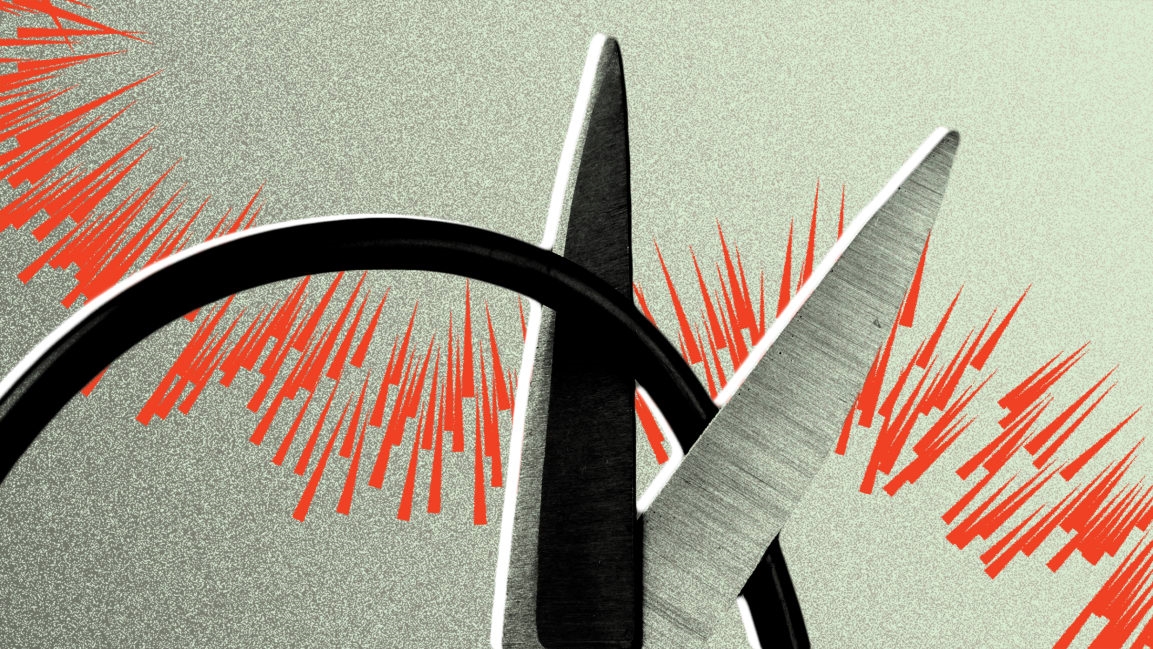Cutting off Trump’s mic at the next debate will backfire. Here’s why
As far as mainstream media outlets are concerned, the appearance of objectivity is a hell of a drug.
Many major news organizations had a difficult time outright characterizing Tuesday night’s first presidential debate as one fatally marred by constant interruptions from Donald Trump. (To be fair, Joe Biden occasionally interrupted Trump as well, just nowhere near the same amount. Objectivity!)
Whoever was responsible for those interruptions—and according to most outlets it could have been anybody, really—may end up forcing the hand of the Commission on Presidential Debates, as the commission is now considering “structural” changes to prevent a similar outcome in the next two debates:
The Commission on Presidential Debates announced that it would consider changes to the remaining debates, citing the need for “structure” after Tuesday night’s often chaotic affair was marked by repeated interruptions. https://t.co/lXMF4ErIni
— ABC News (@ABC) October 1, 2020
It appears that what some found a “dominant” performance from the president could be more accurately described as being in flagrant violation of formal debate rules. The commission has not yet officially announced its planned “structural” changes, but reporters familiar with their thinking have suggested they may include cutting a candidate’s microphone if that candidate refuses to follow the rules, as was notably the case with one particular candidate on Tuesday.
EXCLUSIVE: @CBSNews has learned the Commission on Presidential Debates plans to issue strict new rules in the coming days that include cutting off a candidate’s microphone if they violate the rules, per an informed source.
More tonight on the @CBSEveningNews
— Norah O’Donnell ???????? (@NorahODonnell) September 30, 2020
This solution seems sensible on the surface. But this is 2020, the ghost dimension of years. Sensible packed its hobo bindle and hopped a train long ago.
Here are a few reasons why the commission’s potential mic-cutting rule:
Trump might not agree to a debate with this rule
Earlier this week, I revisited the 2016 presidential debates to prognosticate what the 2020 editions might have in store. Lest anyone forget, Trump frequently interrupted then-candidate Hillary Clinton as well, though perhaps not to the extent that we saw this week. Not only does it seem to be part of his strategy to throw an opponent off his or her game, it seems to be indicative of an impulse-control problem. How is Donald Trump supposed to just stand there at his podium for the remaining minute and 27 seconds left in Joe Biden’s turn after Biden points out something negative about his presidency?
Trump would never cite as the reason for dropping out of the debate that not being able to interrupt is like fighting with one hand tied behind his back, but he might just focus on the new rule as a rebuke to him and retreat accordingly.
Cutting a mic doesn’t mean cutting one’s vocal cords
The fact of the matter is that when two people are in the same room, separated by six feet away of distance, they don’t necessarily need a microphone to interrupt. Trump—or whichever candidate may be more prone to constant interruptions in the next debate—will still be able to shout insults and ostensible corrections at the other candidate. Actually, this might end up even worse than the current situation, in that viewers at home might only be able to see the candidate whose turn it is to speak (let’s call him Joe Biden) react to the other candidate’s heckles, without actually hearing those heckles. If that were the case, it would look like the candidate speaking was rattled by phantom voices.
Trump’s supporters will claim bias and Trump will agree
Conservatives regularly complain that social media is censorious and biased against them, despite the fact that right-leaning posts consistently dominate Facebook’s top 10 each day. Despite the fact that both candidates would face the same restrictions when it comes to interruptions, Trump supporters would interpret it as the Commission of Presidential Debates being in the tank for Biden, and see the change in its rules as evidence of a coordinated effort to diminish Mr. Trump. Some Trump supporters already believe that Biden’s non-senile performance in Tuesday’s debate is due to AR contact lenses. Cutting off Trump’s mic, even as he interrupts for the umpteenth time that night, will only feed their suspicions that the deep state is trying to steal the election.
Students of Trump’s particular approach to politics (aka all of us now) are aware that this is exactly the environment in which he thrives. Trump might amplify his supporters’ claims of bias, which would in turn energize them further. The next logical step would be, once again, Trump walking away from the debates that were so unfair to him, the president.
Here’s how one Trump supporter with more than 300,000 followers interpreted the potential rule, for instance.
The Commission on Presidential Debates is apparently going to impose a rule where moderators can cut candidates microphones…
Someone please explain to me how that’s not showing their bias against Trump.
— Tim Young (@TimRunsHisMouth) October 1, 2020
And here is how he responded to my suggestion that denying both candidates the opportunity to interrupt excessively would eliminate bias.
Awww Trump hurt your feelings at the debate…
Don’t pretend you don’t love Biden… everyone can see the tweets you like. https://t.co/SZztLLy8AD
— Tim Young (@TimRunsHisMouth) October 1, 2020
It’s a relatively small sample size of one, but this example should illuminate how Trump’s ardent supporters might react to the potential new rule, no matter how reasonably it’s presented.
The idea of a moderator being able to enforce Donald Trump waiting his turn to speak at the remaining two debates is tempting to embrace. In reality, it is destined to backfire spectacularly. Of course, one sort of gets the feeling it might be best if the President of the United States perhaps didn’t require added reinforcement in order to play by the rules.
Fast Company , Read Full Story
(16)



